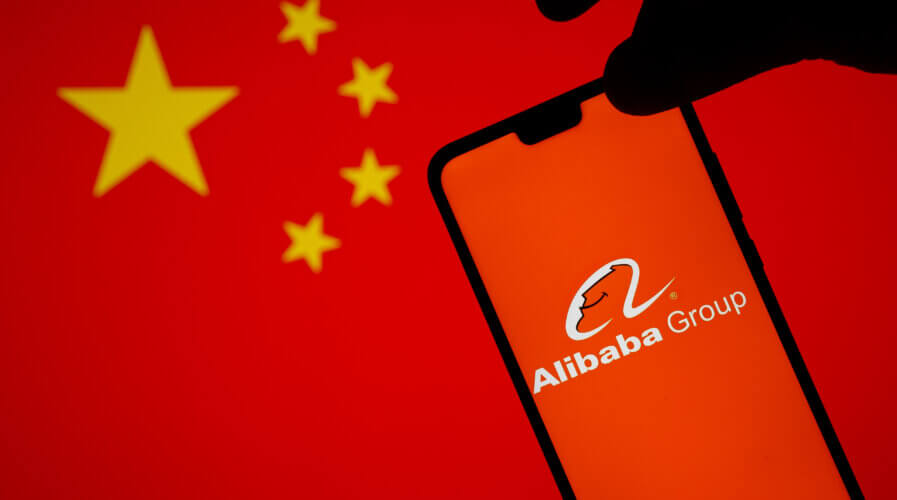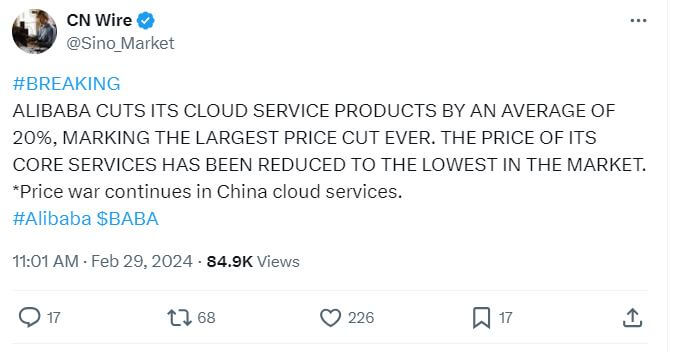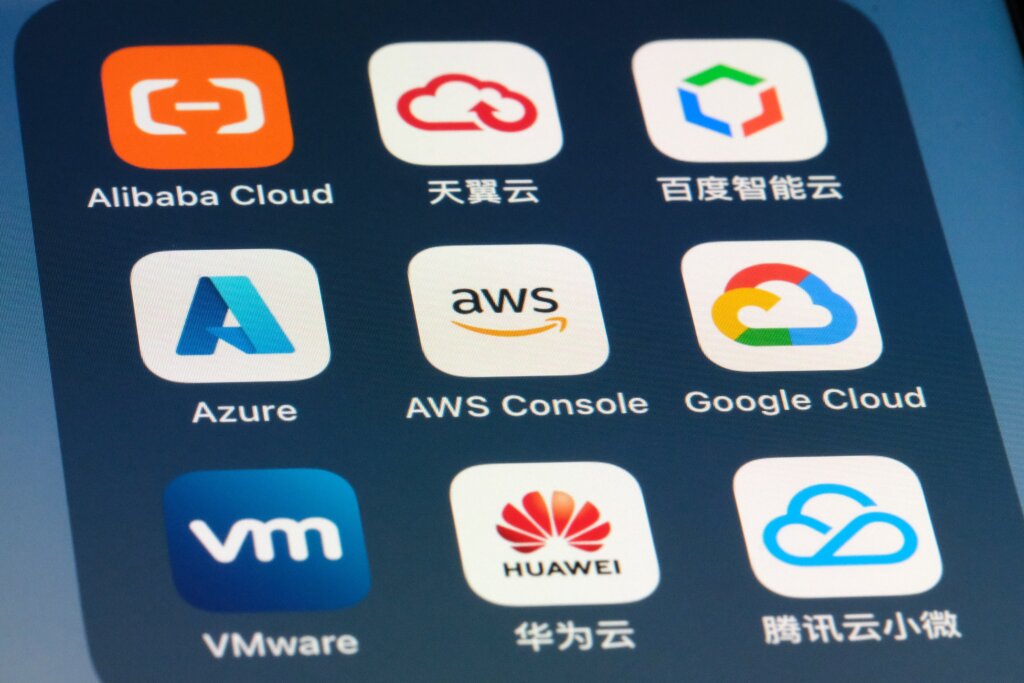
Chinese cloud companies like Alibaba Cloud, Huawei and Tencent have each released AI models and products this year. (Image by Shutterstock)
Chinese cloud companies in pricing war as Alibaba slashes prices
- Alibaba Cloud has taken the bold move of slashing the prices of its cloud services by up to 55%.
- Other Chinese cloud companies may also be tempted to reduce their pricing.
- Chinese cloud companies like Alibaba Cloud, Huawei and Tencent have each released AI models and products this year.
Despite Chinese cloud companies investing heavily in AI development, the uptake among Chinese businesses has not been as high as the industry would like it to be. While there could be many reasons for this, Chinese cloud companies are hoping 2024 will see better growth opportunities and more firms taking up their products and services.
Chinese cloud companies like Alibaba Cloud, Huawei and Tencent have each released AI models and products this year. Chinese tech company Baidu as well as several other Chinese companies have also developed and released more AI models.
According to a report by Canalys released in December 2023, Alibaba Cloud, Huawei Cloud and Tencent Cloud are the top three cloud vendors in Mainland China in Q3 2023. The Chinese cloud companies collectively grew 22% to account for a combined 73% share of customer spending. In Q3 2023, cloud revenue generated via channels in the Chinese market accounted for 25% of total revenue, against 23% in the previous quarter.
But the report also stated that the Chinese cloud services market remains conservative, relying heavily on government and state-owned enterprises to drive growth.
“The innate complexity of AI technology presents challenges in terms of adoption and deployment,” Canalys said, “yet simultaneously unlocks opportunities for a broader AI ecosystem.”

Alibaba Cloud has slashed the prices of its cloud services by up to 55%.
Alibaba Cloud slashes pricing
Given the slow adoption of AI among Chinese businesses, Alibaba Cloud has cut the prices of its cloud services by up to 55%. According to a report by Bloomberg, the company will be slashing its prices by as much as 55%. The price reductions are expected to span over 100 products offered by the Chinese cloud provider.
The price cut is one of the most aggressive moves taken by Alibaba. While there have been price cuts announced in the past by other cloud service providers, none have ever reached a cut as high as the Chinese cloud company.
Alibaba Cloud is probably hoping the price cuts will make its product not only more affordable to Chinese businesses but will also allow them to stay ahead of rivals Tencent and Baidu.
The price slashing is expected to cause a ripple effect in the cloud services industry, which could trigger a price war. Reports by Bloomberg are already indicating that rivals JD.com responded within the same day of Alibaba’s announcement by unveiling its own round of price cuts as well.
Analysts from Bloomberg Intelligence also stated that the price cuts are pretty much a declaration of a cloud price war. Alibaba has struggled over the past year to revamp its vast e-commerce, logistics and cloud empire in the face of fierce competition and geopolitical risks. The company is looking to revive growth after two years of regulatory scrutiny and Covid-era economic turbulence.
It remains to be seen if Huawei, Tencent and other Chinese cloud companies will reduce their prices for their services. However if Alibaba Cloud is capable of doing so and capturing a larger market size in China, the competitors would need to join in or find other ways to boost their customer base.

Has Alibaba Cloud started a price war with other Chinese cloud companies? (Image by Shutterstock).
Chinese cloud companies kick off the global price war?
In 2024, Canalys expects global cloud infrastructure services spending to increase by 20%, compared with 18% in 2023. Currently, the biggest cloud companies in the world are AWS, Microsoft Azure and Google Cloud.
“The integration of generative AI into mainstream software products is accelerating, potentially leading to quicker commercialization of generative AI applications. Google recently introduced its rebranded Gemini large language model into Workspace applications, such as Gmail and Docs. At the same time, Microsoft launched Copilot for Microsoft 365 last November, embedding its generative AI platform into Word, Excel and other office applications,” said Yi Zhang, Analyst at Canalys.
However, could the price slashes in China have an impact on the global cloud services pricing? Given the weakening currencies in Asia Pacific, businesses in the region could opt for a cloud service provider that is capable of giving them the best value they can get.
Alibaba Cloud has a strong presence in APAC, especially in Southeast Asia. A similar price reduction in the region could trigger a price war not just from Chinese cloud companies but global companies as well.
While AWS, Google Cloud and Microsoft remain strong in the region, Chinese cloud companies have a soft spot as well among some businesses. Should the company decide to make a similar move here, businesses will be tempted to pick the cheaper option as well.
For now, though, the price cuts seem to be only in China. Perhaps in the future, if the move seems to be beneficial for the company, they could spread to services outside China as well.
READ MORE
- Data Strategies That Dictate Legacy Overhaul Methods for Established Banks
- Securing Data: A Guide to Navigating Australian Privacy Regulations
- Ethical Threads: Transforming Fashion with Trust and Transparency
- Top 5 Drivers Shaping IT Budgets This Financial Year
- Beyond Connectivity: How Wireless Site Surveys Enhance Tomorrow’s Business Network






